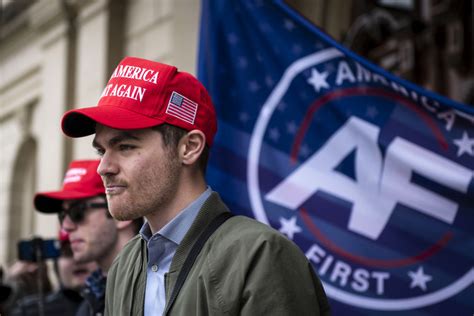In the midst of a quiet morning in Washington, D.C., the echoes of a far-right activist’s words reverberated through the halls of power. The activist, known for his fiery rhetoric and unyielding stance, had raised a loyalty test that sent shockwaves through the nation.
“We need to ensure that everyone within our security agencies is truly loyal to our cause,”
he proclaimed during a press conference outside the Capitol building. His call for a stringent loyalty test among security personnel sparked intense debates and concerns about its potential ramifications.
As news of this development spread like wildfire across social media platforms and news outlets, experts and analysts scrambled to dissect the implications of such a move. Some viewed it as a necessary step towards safeguarding national interests, while others feared it could deepen divisions within an already polarized society.
To understand the significance of this loyalty test proposal, we must delve into the complexities of security agencies’ roles and responsibilities. These agencies serve as bulwarks against internal threats and external adversaries, tasked with upholding law and order while protecting citizens from harm.
In recent years, there has been growing scrutiny on the ideologies and affiliations of individuals within security agencies. Allegations of bias, partisanship, and even extremism have fueled concerns about their ability to perform their duties impartially.
Expert Analysis:
Renowned political analyst Dr. Emily Carter weighed in on the situation: “The introduction of loyalty tests within security agencies could have far-reaching consequences. While ensuring allegiance to national values is crucial, it also raises questions about individual liberties and professional integrity.”
Against this backdrop, the far-right activist’s call for a loyalty test struck a chord with his supporters who echoed his sentiments about rooting out disloyalty within security ranks. On the other hand, critics cautioned against weaponizing loyalty assessments as tools for ideological purges or discrimination.
Insider Insights:
A former intelligence officer who spoke on condition of anonymity shared insights into how such loyalty tests could impact morale within security agencies: “These tests can create an atmosphere of suspicion and paranoia among personnel. It might lead to witch hunts rather than fostering genuine commitment to national security.”
The proposed loyalty test not only ignited debates within political circles but also resonated with everyday Americans concerned about the state of their country’s safety apparatus. Discussions around patriotism, devotion to duty, and personal beliefs intertwined in complex ways as citizens grappled with what it means to serve one’s country faithfully.
As policymakers deliberated on the feasibility and ethical considerations surrounding loyalty tests in security agencies, public opinion remained divided. Calls for transparency, accountability, and respect for diverse perspectives emerged as guiding principles in navigating this delicate terrain.
In conclusion, while demands for unwavering allegiance are not uncommon in times of uncertainty or upheaval, striking a balance between vigilance against threats and respect for individual rights remains paramount. The far-right activist’s loyalty test proposal serves as a stark reminder that safeguarding democracy requires constant vigilance – both externally against adversaries and internally within institutions meant to protect it.

